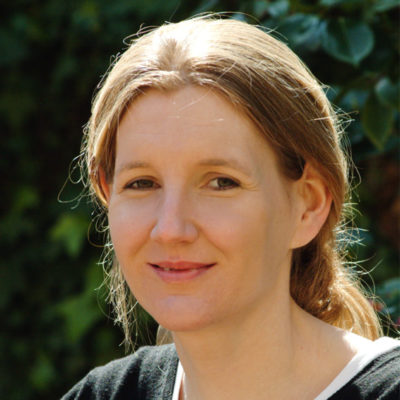 Alumni Weekend 2021
Alumni Weekend 2021
 Barbara van Schewick
Barbara van Schewick
Barbara van Schewick is a Professor of Law and Helen L. Crocker Faculty Scholar at Stanford Law School, Director of Stanford Law School’s Center for Internet and Society, Professor by courtesy of Electrical Engineering in Stanford University’s Department of Electrical Engineering, and a leading expert on net neutrality.
Van Schewick’s research on the economic, regulatory, and strategic implications of communication networks bridges law, networking and economics. Her book Internet Architecture and Innovation (MIT Press 2010, Paperback 2012) is considered to be the seminal work on the science, economics and policy of network neutrality.
Her research has influenced net neutrality debates in the United States, Canada, Latin America, Asia, and Europe, and has been cited by academics, stakeholders, regulatory agencies, and other public entities worldwide. The Federal Communications Commission’s 2010 and 2014 Open Internet Orders relied heavily on her work. Her work also shaped the European Union’s recently adopted guidelines implementing the European Union’s net neutrality law, the 2017 Orders on zero-rating by the Canadian Radio-Television and Telecommunications Commission, and the 2016 Order on zero-rating by the Telecom Regulatory Authority of India.
Van Schewick has testified before the Federal Communications Commission (FCC), the Body of European Regulators for Electronic Communications (BEREC), and the Canadian Radio-television and Telecommunications Commission (CRTC), and has advised policy makers, legislators, and regulators in the US, Latin America, and Europe. She has submitted White Papers, ex parte letters and comments to network-neutrality-related proceedings in the U.S., Canada, India, and Europe, and co- authored amicus briefs defending the FCC’s Order against Comcast and the FCC’s 2010 and 2014 Open Internet Orders. In 2007, van Schewick was one of three academics who, together with public interest groups, filed the petition that started the FCC’s network neutrality inquiry into Comcast’s blocking of BitTorrent and other peer-to-peer protocols. Her letters to the FCC regarding Verizon Wireless’ blocking of tethering applications and Verizon’s, AT&T’s and T-Mobile’s blocking of Google Wallet received widespread attention and motivated the FCC and members of Congress to formally or informally investigate these cases.
Her work has been discussed by leading print and online publications around the world, including the Wall Street Journal, the New York Times, the Washington Post, Politico, the Economist, the BBC, the Times of India, Sueddeutsche Zeitung, Die Zeit, BoingBoing, Wired or Ars Technica, and has been featured on radio and television in the US, Canada, Europe and Australia.
Van Schewick received the Scientific Award 2005 from the German Foundation for Law and Computer Science and the Award in Memory of Dieter Meurer 2006 from the German Association for the Use of Information Technology in Law (“EDV-Gerichtstag”) for her doctoral work. In 2010, she received the Research Prize Technical Communication 2010 from the Alcatel-Lucent Stiftung for Communications Research for her “pioneering work in the area of Internet architecture, innovation and regulation.”
Van Schewick holds a PhD in Computer Science, an MSc in Computer Science, and a BSc in Computer Science, all summa cum laude from Technical University Berlin, the Second State Exam in Law (equivalent of Bar Exam), summa cum laude, from the Higher Regional Court Berlin and the First State Exam in Law (equivalent of J.D.), summa cum laude, from Free University Berlin.
Funding
Barbara van Schewick’s salary, research support, and travel* are funded through the general budget of Stanford Law School and are independent of the budget and funding of the Center for Internet and Society. A small portion of her salary is funded by the National Science Foundation and the MacArthur Foundation for her supervision of two projects at the Center related to consumer privacy and to the Fourth Amendment. She has received no direct or indirect corporate funding for her work with the Center for Internet and Society or Stanford Law School, and the Center does not accept corporate funding for its network neutrality-related work.
*Unless covered by event organizers.